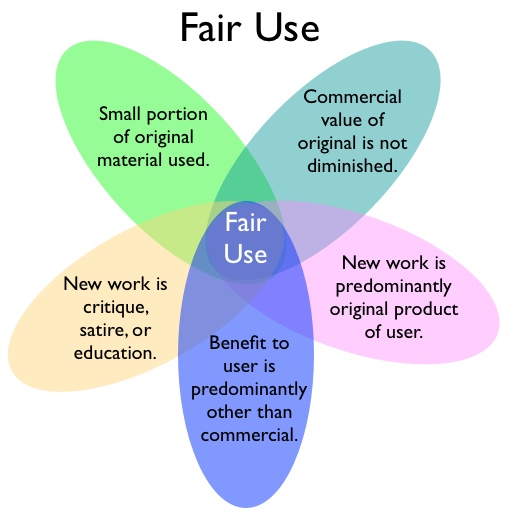Google acquired Youtube in 2006. Within a year, they were sued by Viacom for an incredible $1 billion over alleged copyright infringement that appeared on the site. Youtube responded by defending themselves under the banner of the Online Copyright Infringement Liability Limitation Act, negating their responsibility, and ultimately facilitating copyright holder’s ability to claim and remove content via the Digital Millennium Copyright Act (DMCA).
It was a major misstep by the company. As online video content creation burgeoned into a massive industry, copyright holders began to abuse their powers under the guise of protecting their work from piracy. But what’s the crucial distinction between piracy and what creators are producing? Fair Use.
“Fair Use is any copying of copyrighted material done for a limited and “transformative” purpose, such as to comment upon, criticise, or parody a copyrighted work. Such uses can be done without permission from the copyright owner.”
Once again, the Hollywood system was proving that it wasn’t cut out to deal with challenges, resorting to a shambolic flexing of strength. Many studios have designed automated systems that search for content, or even simple terms, and launch a DMCA claim in response. These systems do not consider context – the principal factor in defining Fair Use – nor are they often accurate. On one occasion back in 2012, I uploaded a film trailer for a producer onto Youtube, only to have their distributor claim the trailer, leaving it unavailable to be watched in the crucial weeks leading up to the film’s release.
It’s now more of a problem than ever. DMCA claims are resulting in a loss of income for content creators, and are even threatening their entire livelihoods. Last month, popular parody personalities TeamFourStar had their entire channel taken down after what were presumed to be automated claims against a series of videos several years old. TeamFourStar received no word from those who saw their work removed from Youtube, and it took nearly a fortnight to have the channel reinstated.
The shutdown came less than a week after Doug Walker – who rose to prominence outside of Youtube with his media company Channel Awesome – released a video calling for content creators to rise up against an unfair system.
It was a wakeup call for Youtube. Their copyright claim system was unfairly biased towards claimants; their response to creators fighting against major media distributors informal and unhelpful. But now the very people who brought the platform to such prominence were reacting en masse to what they viewed as illegal abuse of a system that facilitated ignorance, arrogance, and abuse.
The company responded by developing a team focused on “minimising mistakes”, with promises of further advancements in creating better communications with their userbase in the future.
It’s a start, but will it be enough? Youtube’s response places the blame on themselves. Yes, the system is flawed, but the truth is it’s the multinationals with vested interests in entertainment content are the ones doing the damage.
Until the claimants face the same penalties as content producers for irresponsible use of the claims system, the only result will be more work for Youtube. They still hold the power, and not just over Youtube. Netflix’s recent decision to geo-block content is proof of this.
The most important response needs to come from leaders in the entertainment industry. Instead of striking a 24-second clip of a baby dancing to Prince, Universal should be promoting creators who give positive reviews to their artist’s work. Instead of Apple claiming copyright on a video that featured their 1984 Superbowl Commercial (ironic, if you’ve seen it), they should be helping protect online innovators.
Can you imagine what EA would have missed out in if they’d claimed against PewDiePie for his Skate 3 videos; videos that saw the game get a re-release and remain in the Top 40 in 2014, five years after its initial release? The distributor’s gain far surpasses the gains of copyright holders who strong-arm creators. In fact, with creator fanbases in the millions, they are likely to lose significant audience support in the process. They just don’t realise this yet, and by the time they do, it will be too late.
I, for one, will be watching how the issue is handled with interest. My loyalty, and the loyalty of all 1 billion Youtube users, is not to the platform. It’s to the content creators. And where they go, we will follow.
For more information on Fair Use, and how the current system is impacting content creators, I recommend Doug Walker’s video below.

